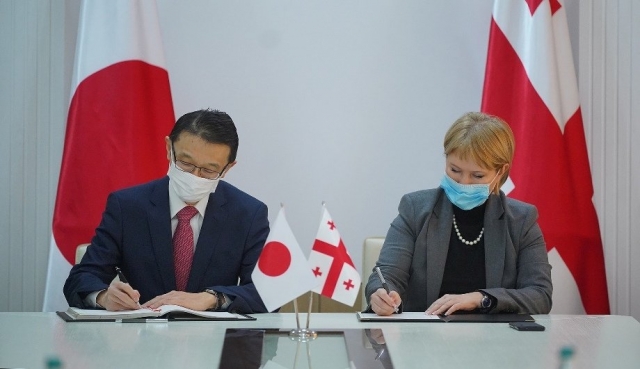Georgia, Japan Agree on Investment Protection, Evasion of Double Taxation
To deepen Georgia-Japan economic cooperation and attract investments, two important treaties were signed today, the government administration reports.
Based on official sources, Georgia and Japan, represented by Georgia's Finance Minister and Japan's Ambassador Extraordinary and Plenipotentiary, signed a treaty of the avoidance of double taxation.
Last June, the Finance Ministry launched negotiations with Japan on the resumption of the Treaty for the Avoidance of Double Taxation.
Importantly, the Treaty on the Avoidance of Double Taxation and the Prevention of Fiscal Evasion replaced the 1986 agreement between Japan and the Soviet Union, thus providing a new legal framework document to regulate the avoidance of double taxation by Georgia and Japan.
Georgia enjoys treaties on double taxation avoidance with 56 countries.
Another document signed between Georgia and Japan today is the Treaty on Investment Liberalization, Promotion and Protection. The document was signed by Georgia's Minister of Economy and Sustainable Development and Japan's Ambassador Extraordinary and Plenipotentiary.
The treaty involves the adoption of legal protection mechanisms for investments made in both countries. This will promote private capital flows between Georgia and Japan, stimulate entrepreneurial investments, boost the effective development of economic resources, and deepen economic relations.
Japan is a large investor in Georgia, and Japanese investments are valued highly.
16 companies presently operate in Georgia with the participation of Japanese capital.
In the first 3 quarters of 2020, Japanese investments in Georgia made up 15.4 million USD, mostly in the energy sector.
Notably, in the spring of 2020, TEPCO Renewable Power (TEPCO RP), a Japanese energy giant, invested in Georgia's energy system by buying 31.4% of the shares in one of the largest projects. Interestingly, TEPCO RP's decision to invest in Georgia was encouraged by the country's advantageous business and energy policies.











